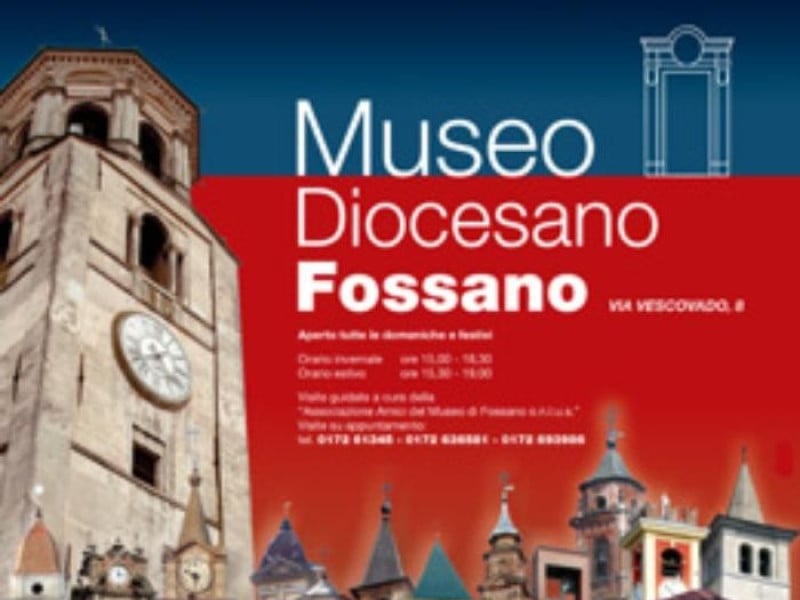Destinazioni - Comune
Fossano
Where
Fossano (Cuneo)
Fossano is a town and comune of Piedmont, Italy, in the province of Cuneo. It is the fourth largest town of the Province of Cuneo, after Cuneo, Alba and Bra.
It lies on the main railway line from Turin to Cuneo and to Savona, and has a branch line to Mondovì.
Chief industries of the town include confectionery (with Italian industries Balocco and Maina), chemicals, metallurgy, and textiles.
History
Fossano appeared as a commune in 1236, founded by a Guelph league of cities, but in 1251 had to yield to Asti. In 1304 it was acquired by the Marquisate of Saluzzo. It finally surrendered in 1314 to Filippo d'Acaia, whose successor handed it over to the house of Savoy.
Etymology
The name Fossano could be the transformation of the name "locus" or "fundus faucianus", from the Roman first name Faucius, or derive from the word "fossato" (ditch), in Piedmontese "fossà", from which "fossan" (inhabitant of the ditch).The sinkings are in fact characteristic of the hill on which the first city village rose. The historians agree speaking about “great ditch of the Chiotto”in dialect Ciot, hole, pit... Another alternative hypothesis is that the name comes from the latin “fons sana" (healthy spring), to indicate the presence in the proximitiy of a drinkable water spring.
Main sights
Old town
The old part of the town of Fossano lies in the high part of the town. It is divided in two borghi (ancient quarters): Borgo Piazza (Square's Quarter), developed in the 15th through 18th centuries, and Borgo Vecchio (Old Quarter), the oldest part of the town, dating from the Middle Ages. Rich in mediaeval, Renaissance and Baroque buildings, it is characterized by the ancient portici (arcades), built on both sides of via Roma (the main street of the old town) but also along other streets, such as via Cavour, via Garibaldi, via Barotti, via Muratori. On the Eastern side, the old town is delimited by viale Mellano, a pedestrian promenade with a wonderful sight of Langhe; on the Western side, along via Martiri dell'Indipendenza, viale Sacerdote and viale Bianco, you can enjoy the panorama of South-western Alps, whose apex is Monviso. Some sections of the ancient town walls are still extant.
Castle of the Princes of Acaja
It is a massive castle with four high towers, begun by Filippo d'Acaia in 1314 and finished in 1332. It has a square plan with four powerful towers at each side, connected by passages with merlons. One century later Amadeus VIII of Savoy turned it into a ducal residence; the beautiful inner courtyard, designed by Gaspare Solari, is from the late 15th century. The castle, after serving as jail and barracks, is now the seat of cultural events and of one of the biggest libraries of the region.
Other sights
The cathedral was reconstructed at the end of the 18th century in Neoclassicist style, replacing the former 13th century church.
The town's hospital and the Trinity Church were designed by Francesco Gallo in the 18th century. The Palazzo del Comandante is a Baroque building constructed in the 17th century. There are also Mineral Baths and a center for agriculture and cattle-breeding.
People
See also Category:People from Fossano
Margaret of Savoy (1390–1464), born in Fossano, was one of the last of the Acaia branch of the House of Savoy. She became Marquise of Montferrat and, on being widowed, a nun at Alba.
Ambrogio Borgognone (c. 1470s – 1523–24), Italian Renaissance painter, is said to have been born here.
Giovanni Giovenale Ancina (1545–1604), priest, scholar and composer, was beatified in the late nineteenth century.
Fiorenzo Bava-Beccaris (1831–1924), a general, especially remembered for the Bava-Beccaris massacre was born in Fossano.
Paola Barale, show girl and Madonna former look-alike.
Twin towns
Rafaela, Argentina
Camponogara, Italy
Długołęka, Poland
References
^ All demographics and other statistics: Italian statistical institute Istat.
This article incorporates text from a publication now in the public domain: Chisholm, Hugh, ed. (1911). Encyclopædia Britannica (11th ed.). Cambridge University Press.

